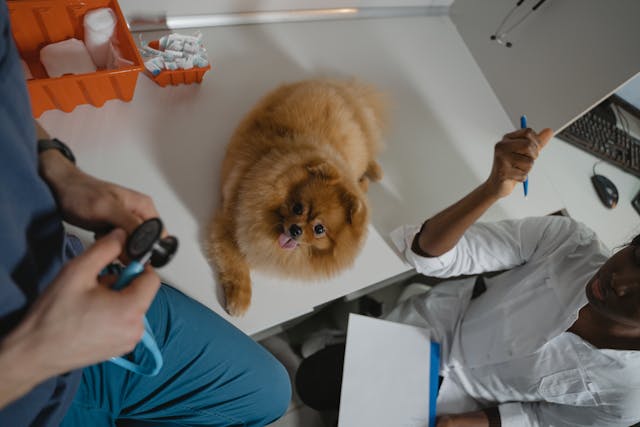When considering home improvements or upgrades to commercial spaces like animal hospitals, window blinds may not always be the first thing that comes to mind. However, these versatile window treatments offer numerous benefits that go beyond just aesthetic appeal. In this blog, we’ll explore the various advantages of installing window blinds in both residential and veterinary settings.
Enhancing Home Comfort and Style
Light Control and Privacy
One of the primary benefits of window blinds is their ability to control light and provide privacy. Unlike curtains, which only offer open or closed options, blinds allow for a range of adjustments. You can tilt the slats to let in the desired amount of light while maintaining privacy. This is particularly useful in bedrooms and living rooms, where you might want to enjoy natural light without compromising on privacy.
Energy Efficiency
Window blinds can significantly contribute to your home’s energy efficiency. During hot summer months, closing the blinds can reduce heat gain, keeping your home cooler and reducing the need for air conditioning. In winter, blinds can act as an extra layer of insulation, helping to retain heat. This can lead to lower energy bills and a smaller carbon footprint.
Aesthetic Versatility
Blinds come in a variety of materials, colors, and styles, making them a versatile choice for any interior design scheme. Whether you prefer the natural look of wooden blinds, the sleek appearance of metal blinds, or the practicality of vinyl, there’s a day night cellular shades to suit every taste and budget. Customizable options allow you to match your blinds perfectly with your home décor.
Easy Maintenance
Unlike fabric curtains, which can be cumbersome to clean, window blinds are relatively low maintenance. Most blinds can be easily wiped down with a damp cloth or dusted with a duster. This makes them an ideal choice for households with pets or children, where cleanliness is a constant concern.
Window Blinds in Animal Hospitals
Creating a Calming Environment
Animal hospitals can be stressful environments for pets and their owners. The ability to control light can create a more calming atmosphere. By adjusting the blinds, veterinary staff can reduce glare and harsh sunlight, which can be unsettling for animals. Soft, diffused light can help in creating a more serene setting, making visits less stressful for pets.
Privacy for Sensitive Procedures
Privacy is crucial in an animal hospital setting. Blinds can be used to create private areas for consultations, treatments, and surgeries. This not only ensures the comfort and privacy of pet owners but also helps in maintaining a professional and confidential environment. Blinds can be quickly adjusted to provide the necessary privacy for any situation.
Hygiene and Cleanliness
Animal hospitals must adhere to strict hygiene standards. The easy maintenance of window blinds makes them a practical choice for such settings. Blinds do not harbor dust and allergens like fabric curtains, making them a healthier option for both animals and staff. Regular cleaning can be done efficiently, ensuring that the environment remains sanitary.
Durability and Longevity
Animal hospitals experience high foot traffic and require durable furnishings that can withstand frequent use. Window blinds made from materials like aluminum or high-quality vinyl are robust and long-lasting. They can endure the wear and tear of a busy veterinary practice without needing frequent replacements.
Choosing the Right Blinds
Material Considerations
When selecting blinds for your home or animal hospital, consider the material. Wooden blinds offer a warm, natural look but may require more maintenance. Aluminum and vinyl blinds are more durable and easier to clean, making them suitable for high-traffic areas like animal hospitals.
Light Filtering Options
Different rooms may require different levels of light control. In bedrooms, blackout blinds might be the best option to ensure a good night’s sleep. In living rooms or waiting areas, light-filtering blinds that allow some natural light while maintaining privacy can create a pleasant ambiance.
Customization and Fit
For both homes and commercial spaces, it’s important that blinds fit well. Custom-made blinds can be tailored to fit any window size perfectly, ensuring optimal functionality and appearance. Many suppliers offer a range of customization options, including motorized blinds that can be controlled remotely for added convenience.
Installation and Maintenance Tips
Professional Installation
While installing blinds might seem like a straightforward DIY project, professional installation ensures that they are fitted correctly and function smoothly. This is particularly important in a commercial setting like an animal hospital, where improper installation could lead to frequent adjustments and potential damage.
Regular Cleaning
To maintain the appearance and functionality of your blinds, regular cleaning is essential. Dust and wipe down the blinds periodically, and address any stains or spots promptly. For homes with pets, consider using a vacuum with a brush attachment to remove pet hair from the blinds.
Repairs and Replacements
Over time, even the most durable blinds may require repairs or replacement parts. Keep an eye out for any signs of wear and tear, such as broken slats or malfunctioning mechanisms. Addressing these issues promptly can extend the lifespan of your blinds and keep them looking their best.
Conclusion
Window blinds are a versatile and practical choice for both homes and animal hospitals. They offer numerous benefits, including light control, privacy, energy efficiency, and easy maintenance. By choosing the right blinds and ensuring proper installation and upkeep, you can enhance the comfort, style, and functionality of any space. Whether you’re looking to create a serene home environment or a professional and hygienic animal hospital, window blinds are a valuable addition.
